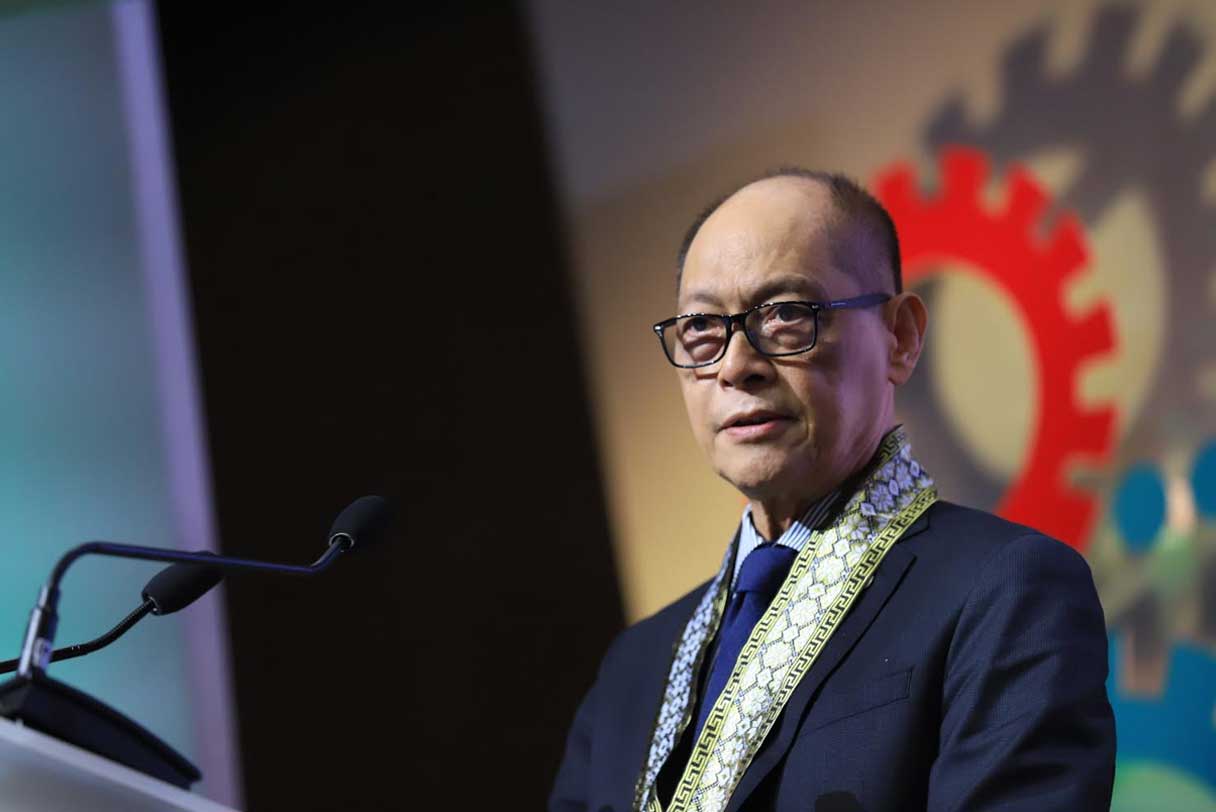
Finance Secretary Benjamin Diokno has assured legislators that the Marcos administration’s proposed national budget for 2023 will propel economic recovery and rapid expansion.
“Allow me to assure Congress that the economic team’s proposed 2023 budget will bolster our country’s bid for a strong recovery and accelerated growth. With capable leaders at the helm and the right policy tools, we face the next six years with full confidence in our bold socioeconomic agenda,” Diokno said during the Development Budget Coordination Committee’s (DBCC) briefing for the House Committee on Appropriations on Friday.
The Marcos administration’s economic team presented to the Committee the current state of the economy, the country’s fiscal performance and borrowing efforts, an overview of the Medium-Term Fiscal Framework (MTFF), the government’s legislative priorities, and the proposed 2023 national budget.
The government is proposing a PHP5.268-trillion budget for 2023, which is 4.9 percent higher than the budget for 2022.
In his opening statement, Diokno said the government seeks to improve spending efficiency and alignment of budget priorities that are anchored on the Marcos administration’s 8-point socioeconomic agenda.
He said the government will focus on productive spending to stimulate growth.
For instance, having the highest multiplier effect in the economy, public infrastructure investments will be sustained at 5 to 6 percent of gross domestic product (GDP).
Diokno said the government will eliminate imprudent spending through the rightsizing of government agencies, among other efficiency-enhancing initiatives.
He thanked the legislators for passing game-changing tax reforms and economic liberalization measures during the 18th Congress.
“The tax reform laws you have enacted have helped transform the Philippines into one of the fastest growing economies in the region. Along with the economic liberalization measures, these have allowed us to reinforce our strong macroeconomic fundamentals, weather the harsh effects of the pandemic, and chart a clear path to recovery and sustained growth,” he added.
For the first half of 2022, the economy grew by 7.8 percent, which is above the DBCC’s full-year growth target of 6.5 to 7.5 percent.
The expansion in the second quarter of the year was broad-based, with positive contributions from three major sectors – agriculture (0.2 percent year-on-year growth), industry (6.3 percent yoy growth), and services (9.1 percent year-on-year growth).
Diokno said the economy only needs to grow by 5.2 to 7.2 percent in the second half of the year to meet the full-year growth rate target for 2022.
He assured legislators that the targets are “very much doable”.
“We are determined to pursue a faster, greener, and more inclusive growth that will benefit all sectors. This goal is guided by the Marcos administration’s 8-point socioeconomic agenda,” he added.
In the near-term, the plan will address urgent challenges confronting Filipinos, particularly the impact of high commodity prices, due to inflation and lingering economic scars from the pandemic.
Over the medium-term, the focus will be on creating more jobs, quality jobs, and green jobs through higher investments in smart infrastructure, human capital development, and digitalization.
Under the MTFF, the government will implement fiscal discipline to reach the said goals. The framework proposes measures that will improve tax administration, enhance the fairness and efficiency of the tax system, and promote environmental sustainability to address climate change.
The MTFF also aims to reduce the country’s debt-to-GDP ratio.
“Our debt-to-GDP is expected to stabilize in 2023 and decline from 2024 onwards, until it reaches less than 60 percent by 2025 and further down to 51.2 percent by 2028,” Diokno said.
He said the country’s need for borrowing will decline significantly as revenues are on the rise and the economy continues to expand.
As part of the government’s prudent debt management strategy and capital market development efforts, the Marcos administration will draw around 75 percent of its financing requirements from domestic sources.
Diokno said this approach will allow the country to remain insulated from foreign exchange volatilities due to ongoing global geopolitical risks.
He said as the economy expands, the debt in relation to the size of the economy will be reduced.
“We look forward to working closely with Congress in pursuing much-needed policies to make the country one of the most dynamic and fastest-rising economies in the region,” he added.






















